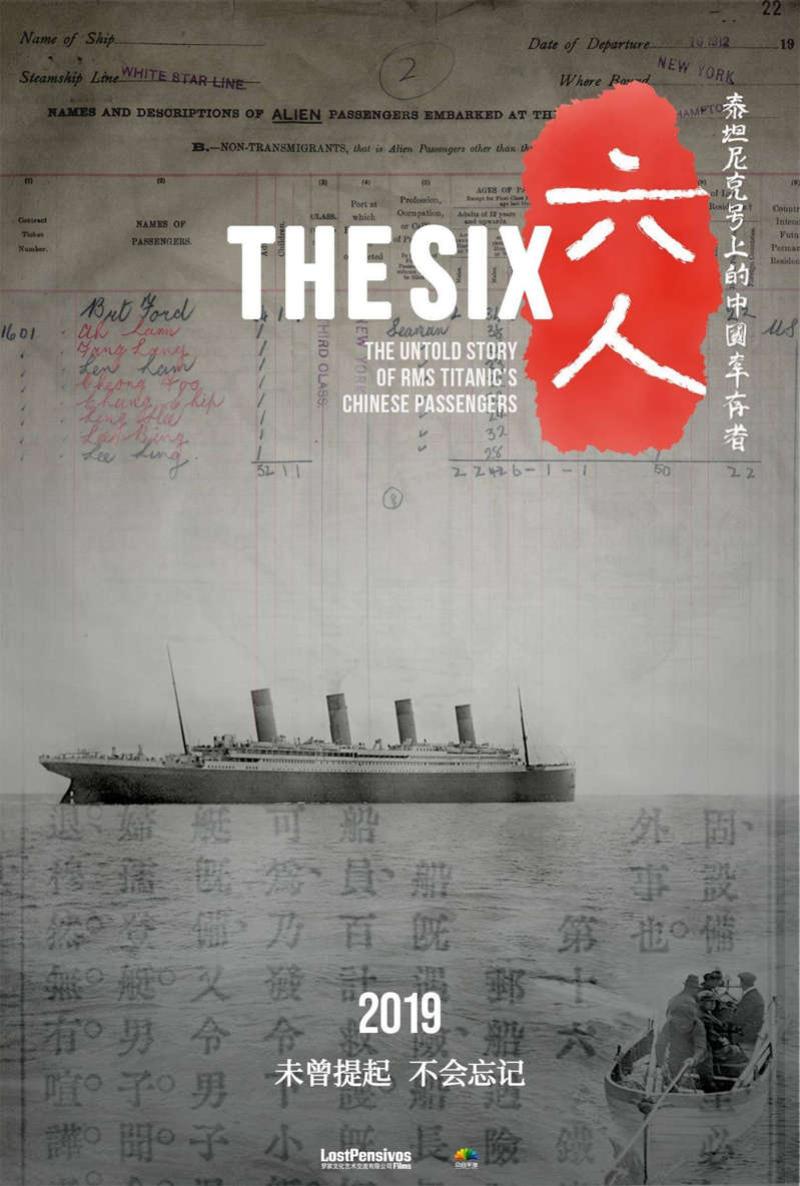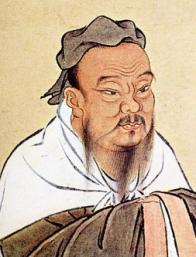Documentary highlights Chinese Titanic survivors barred from U.S., erased from history
By: Kimmy Yam - NBC News

Documentary highlights Chinese Titanic survivors barred from U.S., erased from history
A film about the Titanic's little-known Chinese survivors, scheduled to premiere Friday in China, reveals the rampant anti-Asian attitudes of the time. And experts say that a century later, the survivors' story continues to be chillingly relevant.

© Provided by NBC News
Executive-produced by "Titanic" director James Cameron, the documentary, titled "The Six," revolves around the six passengers who were barred entry into the U.S. after the tragedy on April 15, 1912, and were smeared in the press because they survived.
Steven Schwankert, the film's lead researcher, said the message remains relevant.
"I wish that it were not quite so timely. The horrendous events that we saw in Atlanta really just highlight that the issues that six Chinese passengers on the Titanic faced over 100 years ago are still issues in the United States today," Schwankert said.
"It does highlight that these are, these are not new problems," he said. "I wish I could say that we're so wise now and those things are fixed. But the same kind of misunderstanding and, unfortunately, the same kind of hostility still exists today."
The documentary, which hits theaters the day after the 109th anniversary of the sinking of the Titanic, delves into the experiences of passengers Lee Bing, Fang Lang, Chang Chip, Ling Hee, Ah Lam and Chung Foo.
While some press reports painted the six survivors as stowaways, they were actually professional mariners who were headed to their next jobs, Schwankert said.
"They paid a fare for third-class transport like anyone else, and frankly, third class on the Titanic was probably some of the nicest accommodations on a ship that they had ever encountered," he said.

© Facebook/The Six Image: The Six movie poster (Facebook/The Six)
While their presence was barely noted during the trip, their survival led to scrutiny from fellow passengers and subsequently the press, Schwankert said. Not only were they inaccurately described as stowaways; they were also accused of wedging themselves under the seats and disguising themselves in women's clothing, among other false stories, he said.
In many ways, he said, the Chinese passengers were targets of grief and anger because they survived.
"Did they act in a dishonorable way above and beyond just wanting to survive? The evidence to us was just absolutely clear that they did not," he said. "Nobody, then or now, should have to apologize for surviving. You survived. You made it through a very imperfect situation. You didn't cause anyone's death."
Many of the accounts about the Chinese mariners came from grieving survivors who had just experienced loss, as well as their own pain and trauma, Schwankert said. Many were women who had lost husbands or older sons, and their descriptions were often very skewed, he said. The Chinese survivors ended up being scapegoats.
"If they have a legitimate opportunity to get into a lifeboat seat, there was no reason not to do that. There was no reason to choose death for death's sake and not survive, but there was definitely a feeling after it was all over that if a man survived, he automatically took the place of a woman or a child, and that just simply isn't the case," Schwankert said.
When the Carpathia, the ship that rescued the Titanic's passengers, reached the U.S., the six men were refused entry and spent the night aboard the vessel.
Schwankert said anti-Chinese discrimination at the time was codified and legalized. The Chinese passengers were treated in line with the attitudes the U.S. held toward the Chinese under the Chinese Exclusion Act of 1882 , which initially put a 10-year moratorium on immigration of Chinese laborers. The discriminatory policy was extended several times through the Geary Act and other restrictions. It remained in effect until 1943, when China became a U.S. ally in World War II.
Nancy Wang Yuen, an associate professor of sociology at Biola University in La Mirada, California, said the passengers' vilification tracked with prevailing views of Asian men at the time. They were often painted in the media as "asexual and emasculated," in part because of the Page Act, which barred Asian women from immigrating to the U.S., and because of anti-miscegenation laws that prevented them from marrying outside their race.
"The few articles that mentioned the Chinese survivors characterized them as inhumans and with suspicion, reflective of the Chinese Exclusion Act that was in effect at the time," she said.
Schwankert said that although their post-Titanic treatment was undoubtedly difficult to confront, the mariners are likely to have dealt with far worse later because they worked in the West during a time of rampant racism and discrimination.
"The reality is finding their way through, whether it was Canadian or American or English society in the early part of the 20th century — that was far, far more difficult than making it into a lifeboat and surviving," he said.
The film fleshes out some details of their lives, but still not much is known about them. Their stories were quickly erased from the media and history books, in stark contrast to the well-documented lives of many of the wealthier white survivors, a reflection of how the Chinese passengers were viewed as dismissible, Yuen said.
"The erasure of Chinese survivors compared to the mythical celebration of white Titanic survivors sheds light on how Asians have often been treated in the United States: as casualties of disasters," Yuen said.
The film provided an opportunity to return some dignity and honor to the Chinese passengers, Schwankert said.
"In a few of the cases, we're talking about people whom even we now know very little," he said. "We have a name that might have been a nickname but probably wasn't their given name. It may not have ever shown up on a passport or on an immigration document. But that doesn't mean that they don't deserve dignity. It doesn't mean they don't deserve basic respect as human beings."
.
BUZZ NOTE: Comments are subject to the Confucius Group RED RULES which may be accessed by clicking on the group avatar at the top right of this page.





Time hasn't changed much.
Interesting story. I had never heard any of this before.
I've never heard of this before but I'm not surprised at their treatment.
I just watched this morning's news on the English language CGTN (China Global Television Network) where they devoted part of the program to this documentary - the reprise of something long forgotten, and a reminder of how America treated Chinese people back then, only slightly improved by many Americans these days.
When it comes to the titanic disaster , i cant get enough, it intrigued me at a very early age , long before dr ballard found its resting place or mr cammeron made his movie ( though his movie DID briefly make a mention that there were orientals on the ship as well with a passing shot of some looking for their berths ). and this is something i never knew .
i AM aware of the treatment of Asians , mainly because of my interest in history , and usually when i move somewhere i become engrossed with local history .
with the recent media attention , i recently caught a guy i know stating at least Wyoming doesnt have those problems ........
he got somewhat offended when i pointed out that the heart mnt internment camp was located up by cody , his reply was that was during the war and has nothing to do with now .
i said really? look at how some of the asians locally that own property or run businesses are being accused of racism. and he sort of fidgeted a bit .
i pointed out that one of the largest asian massacres in US history happened in Wyoming right down the road on the trans continental railway after it had been completed .
he got real quiet as did the rest of the bar.
i sipped my bourbon and looked him dead in the eye and said i cant blame you for what happened during the war , i cant blame you for what happened in the 1800s , what i CAN call you out on as wrong is remaining silent when it happens right in front of you during your own times and wrong is wrong no matter how you view it and brother you couldnt be more wrong.
Eh , maybe me not being "pretty " anymore isnt because im getting older and more wrinkly...... may i never get too old for that shit.
You said those things in a bar and left unscathed?
who said i left unscathed?
i left with a decent cut on the brow and the other guy had a broken nose and some loose teeth laying on the floor
i got the cut before he got the broken nose ..
I'm glad I almost never went to a bar - the only one I can remember was in Hyannisport Cape Cod about 60 years ago and my friends had to almost carry me out - considering my condition at the time I'm surprised I still remember it. Sorry - I WAS in a bar in China when I first came here and for the first time in my life drank Baijiu, not being aware of its potency, in which case I WAS pretty well carried out of the bar.
LMAO , You are aware i am Boston bred and born?
i have been to Hyannis Port , my grandmother worked at a hotel there , use to fish off the jetty outside the hotel.also use to play on the beach with some of the kids from the local area and met the Kennedys kids my age , the family paid for my brothers evaluation in Josph P Kennedy jr memorial hosp.( now gone).
local bars here arent bad , and what happened is a rarity, when the guy hit me , i did what he didnt expect, i stepped in grabbed his hair and made his face meet the edge of the bar so fast he couldnt react , game over after that , the bar owner was tending and told me if i was gay he would marry me ( he is gay). i left laughing.
i have seen the guy twice since then and i go in , he leaves ..